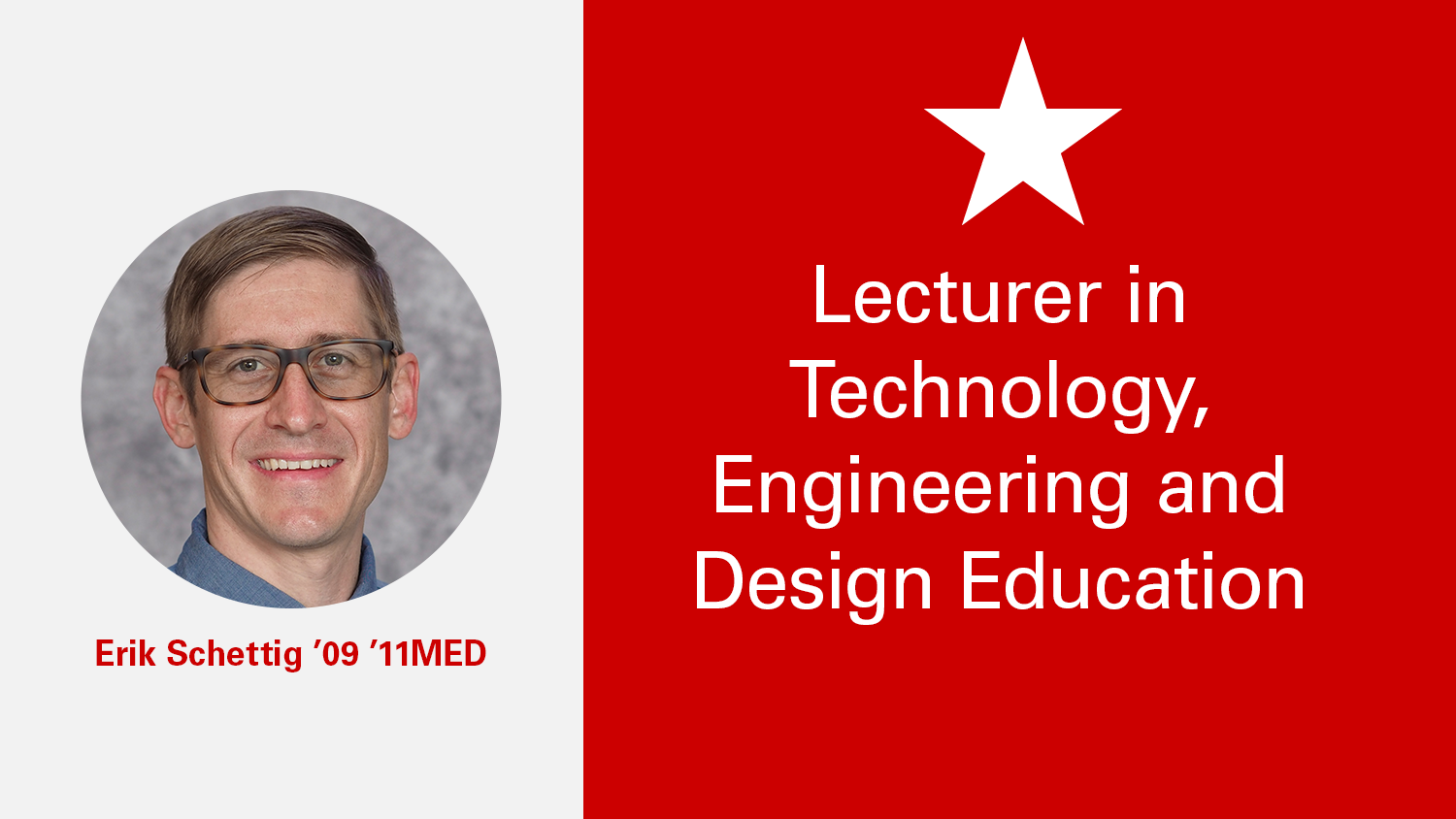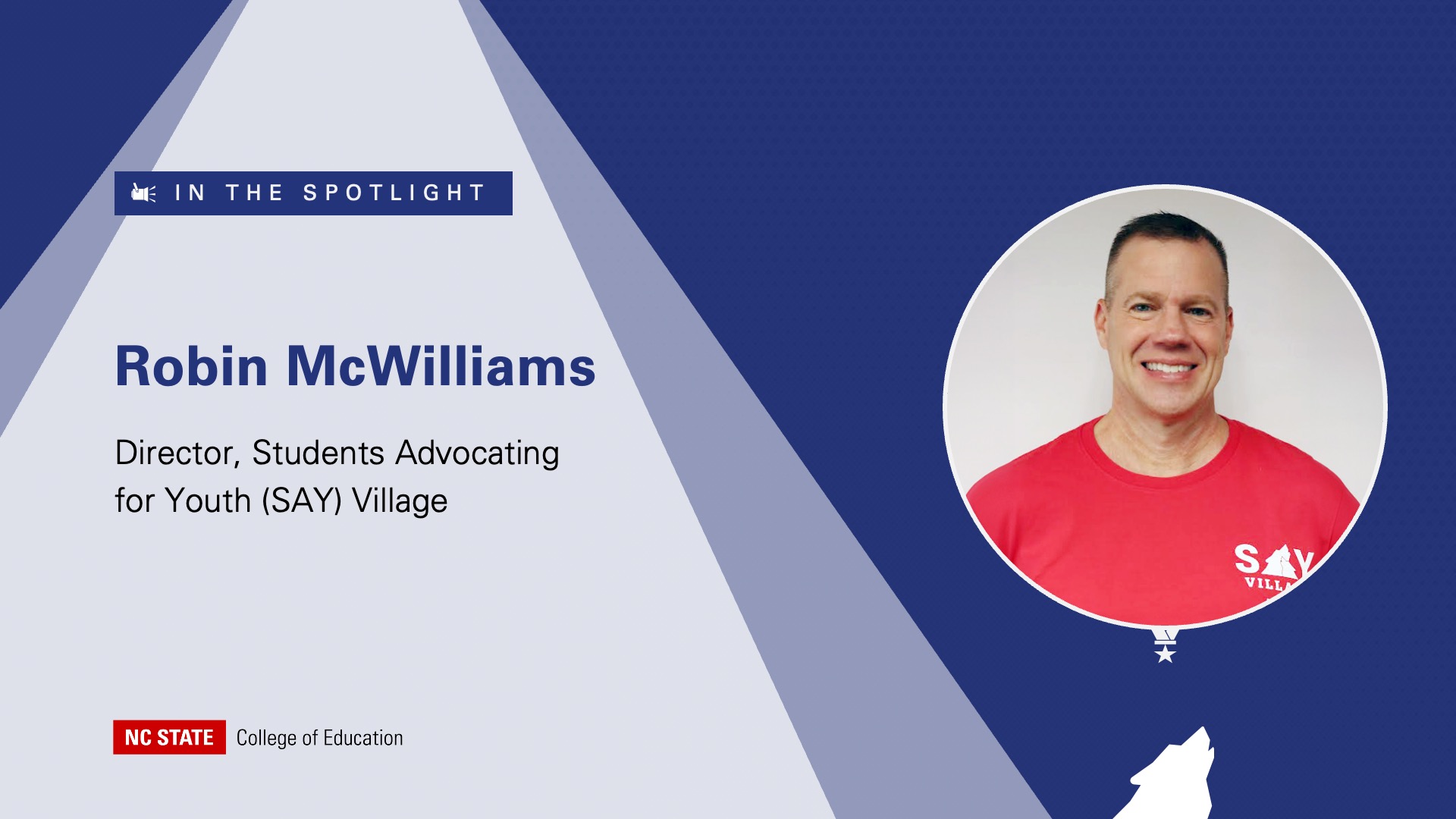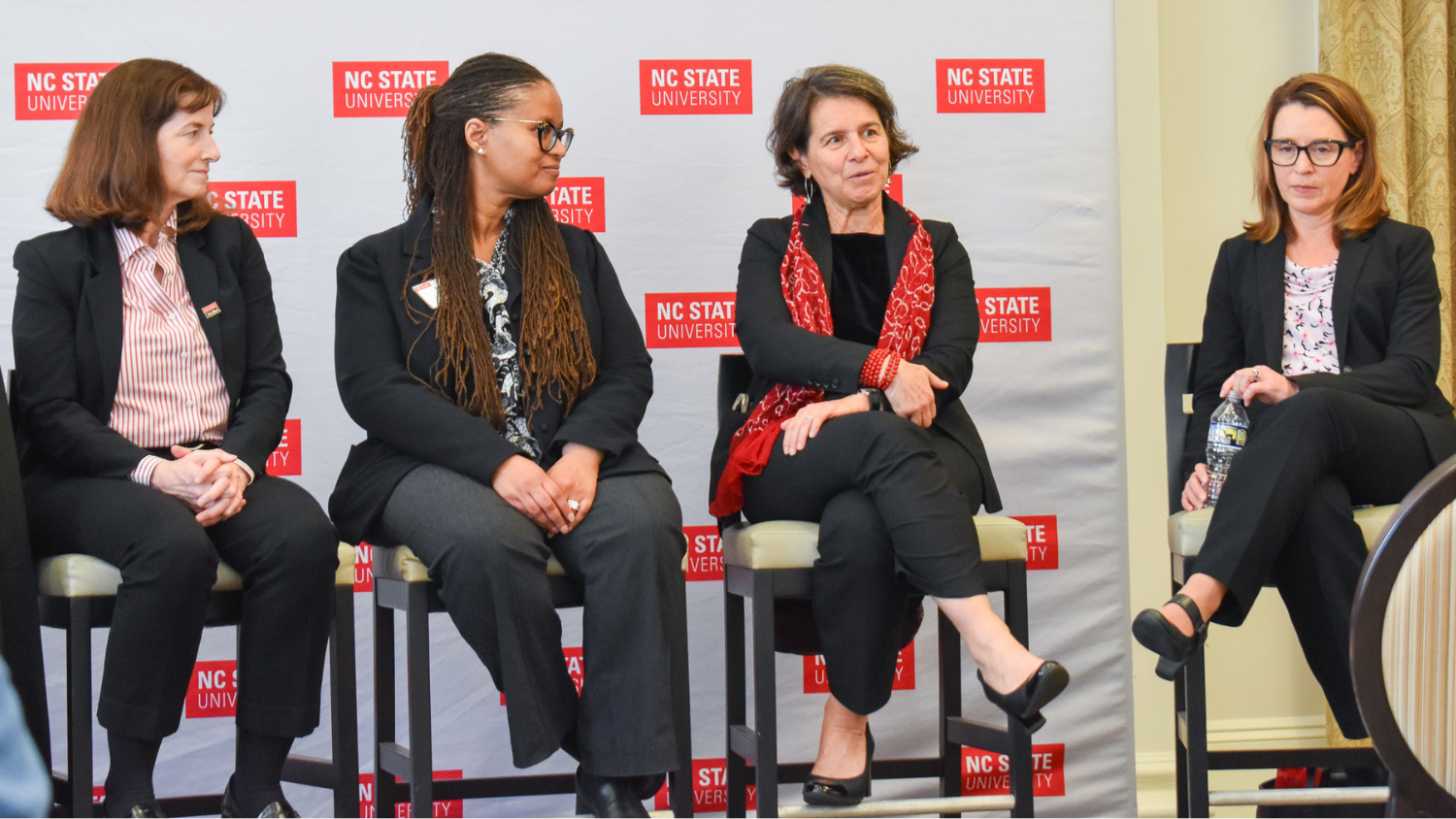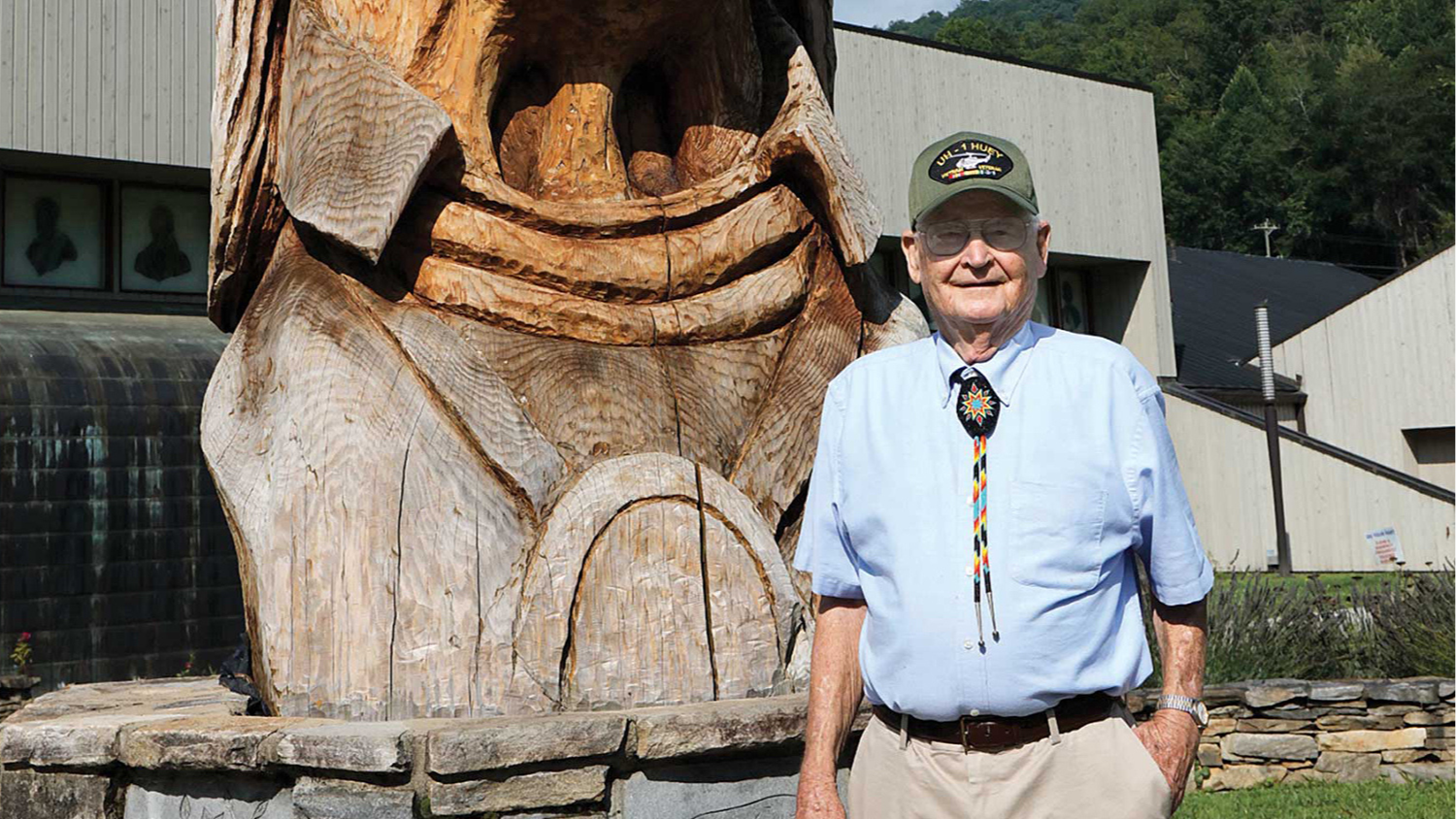Meet Lecturer Erik Schettig ’09 ’11MED: ‘I Hope My Students Learn From Me How to Utilize Resources and Problem-solving Strategies to Apply STEM Concepts’

This is part of a series of profiles about new faculty who have joined the College of Education in the 2021-22 academic year.
Name: Erik Schettig
Title: Lecturer in Technology, Engineering, and Design Education
Education: M.Ed. in Technology, Engineering, and Design Education from NC State University, B.S. in Technology, Engineering, and Design Education from NC State University.
Experience: Technology, Engineering and Design Education Teacher, Wake County Public School System; Pre-College Program Lead Instructor, FREEDM Systems Center
Why did you choose a career in education?
Since high school, I really enjoyed finding out how various technologies worked and how to use them in various applications. When I got to NC State as an undergraduate, I discovered that I wanted to be a technology, engineering and design educator so that I could continue learning how various tools function and guide others in how to apply those tools to improve preparedness. Furthermore, after graduating with my bachelor’s degree, I received my master’s in technology, engineering and design education, as well as a minor in curriculum and instruction development, then went into the teaching profession.
What drew you to your specific field?
What drew me to the field was that it was an opportunity to learn about using various tools ranging from hand tools to digital modeling, and not only learning how they can be applied to solve problems but learning the science and math supporting their applications. From there, I have been able to develop and work with various STEM programs in transferring these experiences to teachers and students.
Why did you decide to pursue a doctoral degree?
I am currently in the process of pursuing my Ph.D. in Learning and Teaching in STEM with a focus on engineering and technology education. I decided to pursue this because I wanted to further my experience with research and development of STEM curricula and professional development. After teaching technology, engineering and design education as well as acting as a STEM coordinator for many years at levels ranging from elementary to high school, I wanted to further enhance my skills related to STEM teaching, curriculum development and research ability.
What are your research interests?
My research interests include STEM curriculum development, providing STEM professional development opportunities, as well as engaging the enhancement of STEM skills related to problem solving and spatial ability in formal and informal environments
What sparked your interest in those topics?
While teaching and leading pre-college STEM programs, there seemed to be curricula that could be improved to more effectively integrate a range of STEM content and skills. I feel that researching such a topic can lead to enhanced curricula that teachers can incorporate into the classroom to further the preparation of students to function within a STEM workplace and 21st century society.
In order to increase STEM experiences that can be transferred to students, teachers need professional development focussed on tools and practices they can relate to and incorporate into their classroom environments. As students and teachers are engaged in the development of STEM skills, they find themselves experiencing STEM concepts in both formal and informal environments. Investigating STEM learning and teaching in and out of the classroom broadens the ability to provide STEM experiences that can lead to the development of STEM interest and identity, leading to further preparation to function within a 21st century society.
What is one research project or moment in your academic career that you are particularly proud of?
I am still proud of those first teaching experiences where, after guiding students’ use of technology and engineering practices for a design project, they experienced those “ah-ha” moments of witnessing how their science and math content can be applied to a problem solution.
What is your teaching philosophy?
My teaching philosophy incorporates a mix of constructivism, where students develop knowledge based upon their applied experiences, as well as pragmatism, where students utilize resources to develop solutions to real-world, relatable problems.
What do you hope your students learn from you?
I hope my students learn from me how to utilize resources and problem-solving strategies to apply STEM concepts in order to be successful in both their professional and personal lives.
What makes someone an extraordinary educator?
An extraordinary educator is someone who is a lifelong learner and uses those experiences to guide the experiences of others in obtaining relatable knowledge and practices. Other features include resourcefulness, the ability to break down concepts and draw connections to real-world examples, let their students fail in order to learn from their mistakes and be able to collaborate with both colleagues and students.
- Categories:


